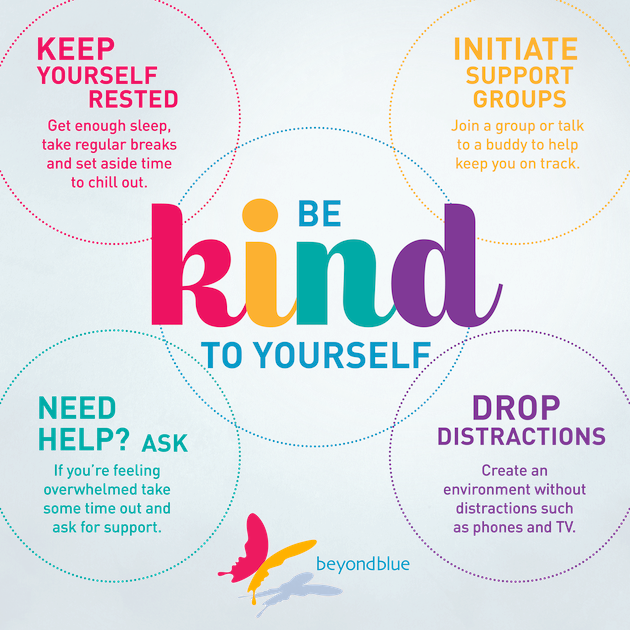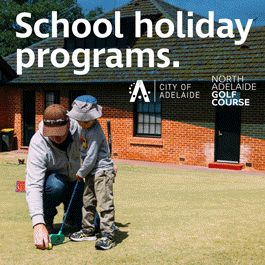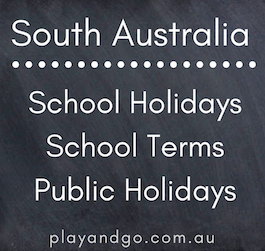Surviving Year 12 in 2020 – Advice from Beyond Blue
The media and those around us can spread a lot of hype and pressure about year 12, but putting things into perspective can really help to avoid becoming overwhelmed.
If you have a child in their final year of school, or have friends or family that do, you will no doubt be aware of the extra stress and worry that has been added to an already difficult year ahead. Apart from the disappointment from missing out on their final year events, such as formals, leadership events and year 12 camps, the uncertainty of the COVID-19 pandemic has caused much angst amongst the Classes of 2020. Beyond Blue have a helpful list of resources available to all students and parents to help manage the unpredictable weeks and months ahead.
Surviving Year 12 by Beyond Blue
The final year of secondary school is important, but it will not be the most important year of your life. Keep things in perspective because you’re far more than your ATAR score.
Your performance in Year 12 is only a measure of your ability in a test or exam at one point in time. It does not control your future success or happiness.
1. Look after yourself
Your brain and body are closely connected – looking after your body has great benefits for your mind. Activities like sport, dance, walking or yoga can increase your performance by increasing oxygen to your brain. It’s also great at reducing tension from stress and school pressure.
Some stress can be useful in keeping us motivated – without it we would find it hard to stay awake! However, during Year 12, and especially during exam time, you may find your stress levels rising high into the ‘critical zone’, causing a dramatic decline in performance. Proven strategies for beating stress include:
- Relaxation: smartphone apps like Smiling Mind can help
- Time management: try making a list of activities and prioritise
- Connecting with others: talk about your worries, laugh, be positive!
Remember to be kind to yourself: take some time out to do the things you enjoy or help you maintain your wellbeing.
2. Get a good night’s sleep
Sleep is important for our bodies to recover and recharge. Without it, it can be hard to concentrate and remember things. It can also make it hard to keep up your energy levels. Sleep is food for the brain and is essential to your wellbeing, just like the air you breathe, the water you drink and the food you eat.
To help you get a good night’s sleep, it’s helpful to:
- get up at the same time each morning
- avoid too much caffeine or alcohol late in the afternoon
- write your worries down before going to bed so you can work on some solutions the next day
- do something relaxing for about 30 minutes before going to bed
- avoid naps in the day
- get up after 15-20 minutes if you can’t sleep rather than staying in bed feeling restless – return to bed when you feel more relaxed and sleepy
- get active every day
3. Managing study
When completing your school assessments and other long-term commitments, remember your goals and reasons for completing these milestones by writing them down and placing them somewhere where you will see them often, like near your computer.
If you are struggling to stay away, there is some software that can help by temporarily blocking you from social media sites, addictive websites and games. Try Cold Turkey for PCs or SelfControl for Macs.
4. Getting support
We know sometimes life does get in the way of study. Things such as depression, problems at school or home, body image issues, binge drinking and drugs are all things that can stop you from staying focused.
These issues can happen in any year of school and can be too big to handle alone. Talk to your student welfare coordinator, a trusted adult, online or phone support service for some advice and solutions.
Click here for support options or call 1300 22 4636 (open 24 hours a day)
5. Looking after your mates
Have you noticed a friend acting differently lately and not sure how to ask them if they’re OK? Beyond Blue’s free Check-in app can help you have the conversation.
If you want to support your friend but you’re concerned about saying the wrong thing or making the situation worse, the Beyond Blue Check-in app takes you through four easy, quick steps to plan what you might say and how you might support your friend.
The Check-in app is free to download from Google Play and the Apple App Store.
Watch the Check-in app video below:
Click here for Beyond Blue’s Surviving Year 12 Fact Sheet for Parents
For more information and all enquiries please visit the Beyond Blue website.
At Play & Go Adelaide we make every effort to provide accurate information to the best of our knowledge at the time of publication. We recommend confirming times, dates and details directly before making any plans as details may be subject to change.
Image Source: Beyond Blue
SUBSCRIBE
Want to get all the latest events and activities straight to your inbox?
Subscribe to our weekly email newsletter below to keep up to date with our latest posts and find out all the best events & activities for Adelaide families. Newsletters are only sent once a week, and you may sometimes get a special offer exclusively for our subscribers only!





















